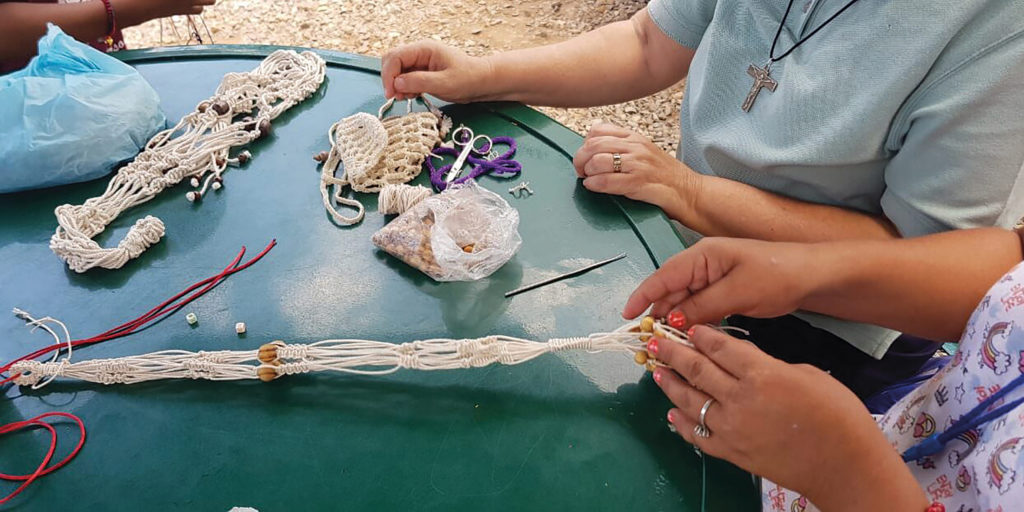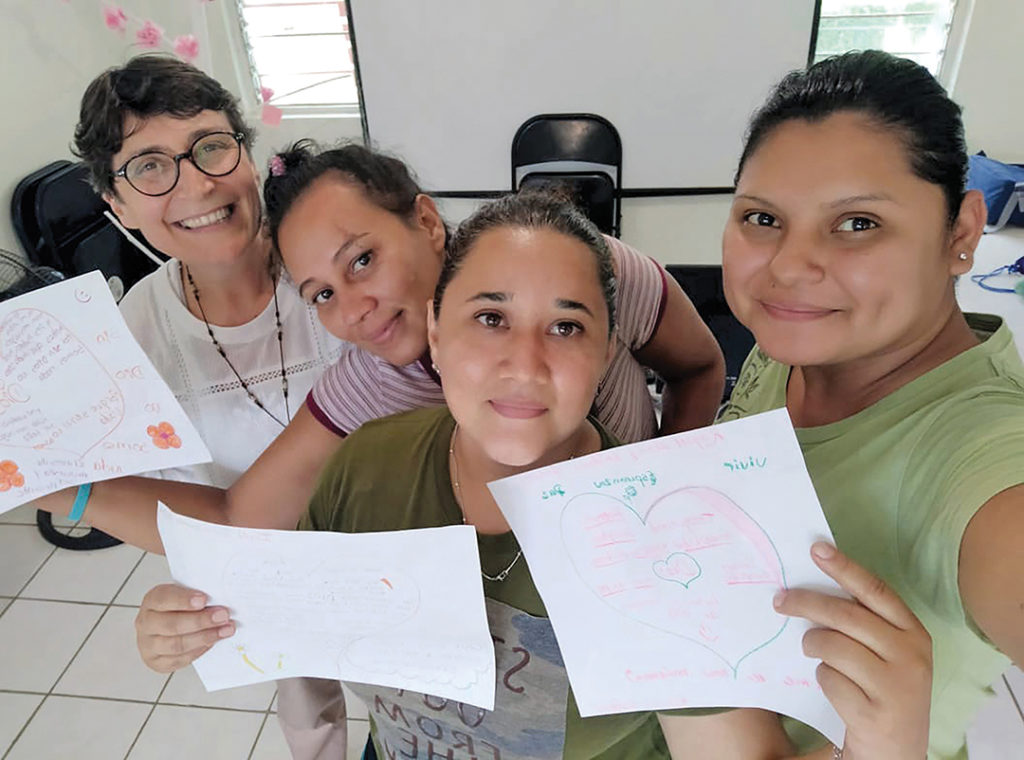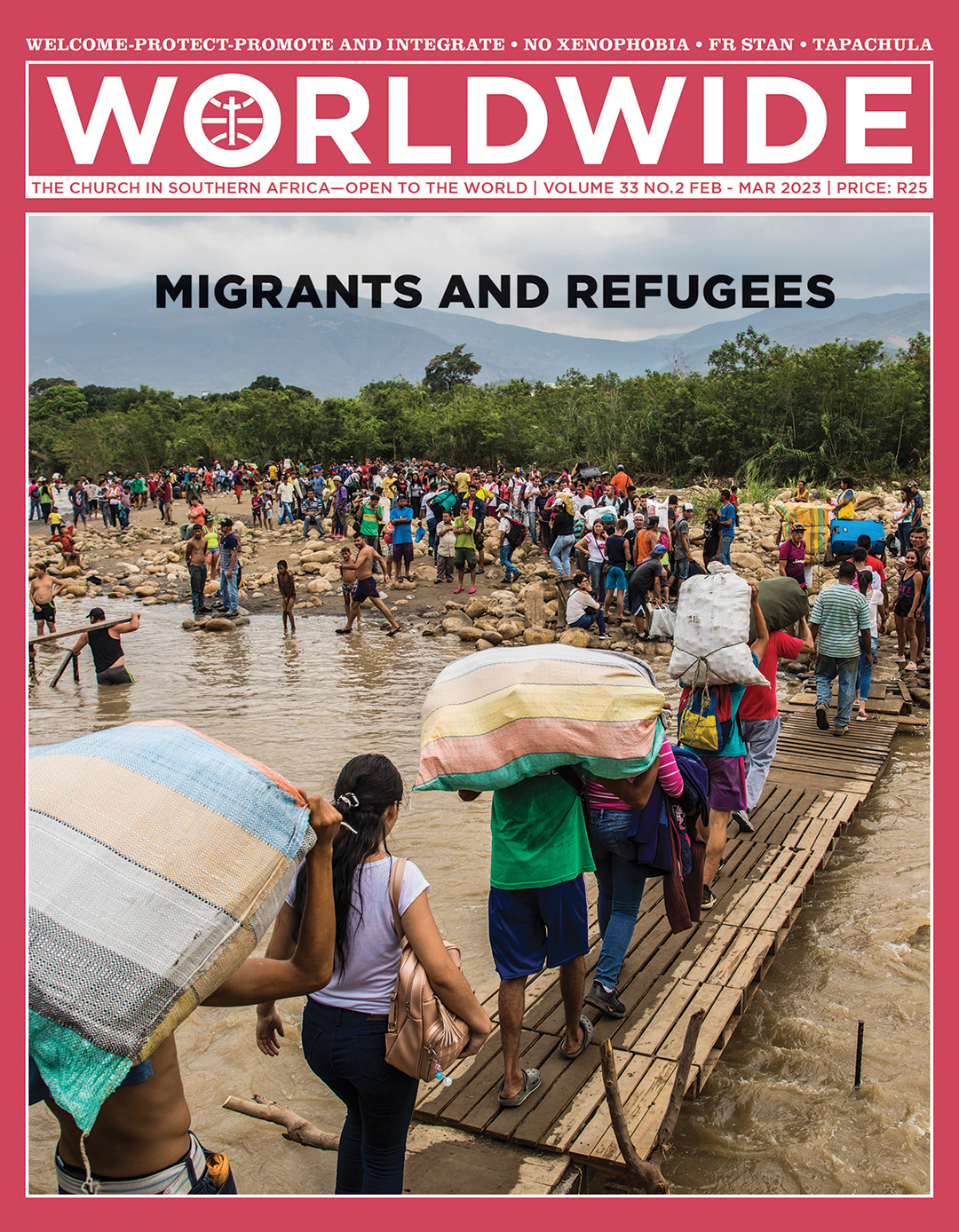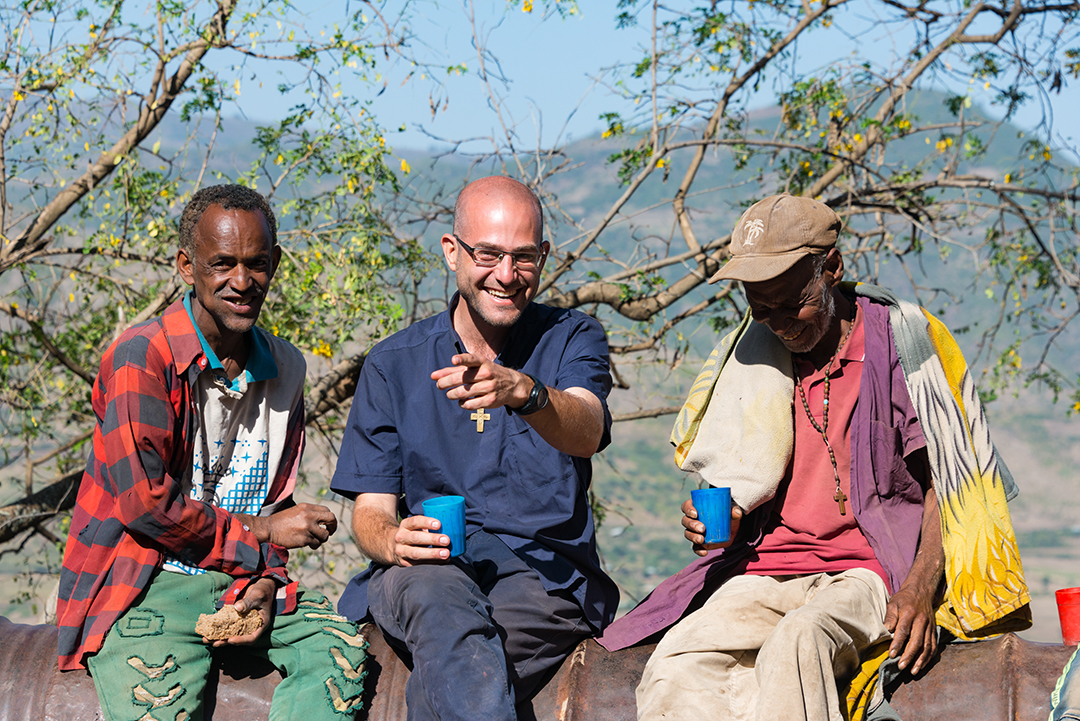FRONTIERS • MEXICO-GUATEMALA BORDER

A Stop-Over for Healing
Faced with the migration crisis at the border of Guatemala and Mexico, the Comboni Missionary Sisters (CMS) decided to commit themselves and respond to it. They opened a centre which offers assistance and rehabilitation to the queues of migrants who journey northwards
BY Sr Pompea Cornacchia CMS | Tapachula, Mexico
HUNDREDS OF women, young people, girls and boys, arrive at Belen Reception Centre every day but this diocesan shelter in Tapachula is not their final destination. Hailing from Honduras, El Salvador, Cuba, Nicaragua, Guatemala and Haiti, they have one thing in common: they pursue the American dream. Tapachula, a city in the state of Chiapas, is just a place of transit. It is among the most dangerous Mexican border cities. This small city, neighbouring Guatemala, witnesses the daily crossing of thousands of migrants from Central America and the Caribbean, including Africans and Asians.
Effata crisis intervention programme
The Comboni Missionary Sisters set up a crisis intervention programme called Effata at the Belen shelter, to assist and serve the migrants. Effata is a powerful word which in Aramaic means, be opened. It expresses a desire and a commitment in favour of life.
A community of four Comboni Sisters, from Costa Rica, Mexico and Italy welcome and provide support and compassionate care to the migrants. Three are dedicated to listening and healing through spiritual and therapeutic accompaniment, assisting those who strive to integrate their experience of trauma. Under the Sisters’ care, they renew their hope, self-esteem and courage. Another Sister gives handicraft classes. Both children and adults participate joyfully in art therapy which helps them to develop their creativity. The intervention is focused on two steps: accommodation of the population in shelters or refugee camps and repatriation to their countries of origin to help them to continue in their rehabilitation process.
A community of four Comboni Sisters welcome and provide support and compassionate care to the migrants
The Mexican border is flooded with tears, nightmares and dreams of those who cross it every day. According to the International Organization for Migration (IOM), in 2019, around 450 000 people crossed the border from Guatemala into Mexico seeking asylum or trying to continue their journey towards the north. Young people are fleeing from gang violence, while others are forcibly displaced. Poverty, inequality, social unrest and lack of opportunities are other factors that cause people to leave their families and their countries.
Witnessing the arrival of caravans of migrants at the southern border of Mexico in 2018, the Comboni Missionary Sisters decided to get involved in their humanitarian care. They realised that the reception conditions for migrants in Tapachula were very poor and limited. People were facing serious difficulties in terms of accommodation and food. The most vulnerable, such as single mothers with small children, large families, pregnant women, unaccompanied children and adolescents, the elderly, LGBTQ people, survivors of sexual violence, faced even more precarious situations. Moreover, the Siglo XXI migration station, where thousands of migrants are detained, is also located in Tapachula.

Numerous migrations
As a response to this humanitarian emergency, a CMS community was established in May 2019. Since then, the Comboni Sisters have been committed to promoting the human rights of migrants in collaboration with the Hospitalidad y Solidaridad shelter, a space for refugees and asylum seekers.
In the last two decades, the transit of migrants through Mexico has become a critical phenomenon of human mobility, both in terms of its magnitude and the conditions in which it occurs. Massive flows have gained the attention of the academic and media world. Understanding the causes, effects, risks and vulnerability of those who enter the Mexican territory without proper documentation is crucial. On the other hand, the ordinary transit of Central Americans, the so-called caravans or exoduses that began in 2010 and continued from 2018 to 2020 received contradictory responses in the host communities: rejection by some members and welcome by others.
Poverty, inequality, social unrest and lack of opportunities are other factors that cause people to leave their families and their countries
In 2020, the lockdown due to the pandemic put migrants and asylum seekers at risk at the border and in detention centres. Trapped, they became even more vulnerable to organised crime. Borders were closed and migrants were left unattended, as the centres did not provide them with security. Feelings of incomprehension and despair, as well as a loss of orientation, became an open challenge. At the moment, stranded migrants, asylum seekers and refugees say that they are modifying their American dream into a Mexican dream.
Through the programme, women lighten their backload, their energy flows back, and healing takes place. Some arrive with an accumulated amount of grief and sometimes they can’t even breathe. As they process their pain, loss and grief, they regain a sense of courage, strength and determination. Some of them commit themselves to help others who are in the early stages of the healing process.

Much work remains to be done in the Effata intervention programme at the Belen shelter in Tapachula. However, we Comboni Missionary Sisters know that we are not alone. The Spirit of Jesus and the solidarity of the world community strengthen us for service. To you, migrant woman, we say with tenderness, “Open yourself with renewed hope to a more human world: Effata!”.


